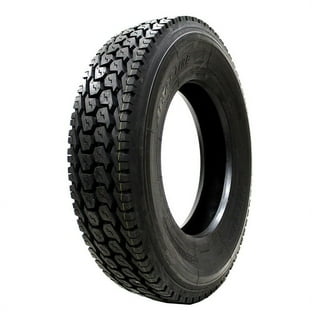Discover Exclusive Mopar Tire Service Specials in Morris Today
Tire Service: Recognizing Tire Stress Surveillance Equipments
Understanding Tire Stress Tracking Systems (TPMS) is a critical element of preserving optimum vehicle performance and safety on the roadway. With innovations in auto technology, TPMS has ended up being a typical feature in modern-day vehicles, giving real-time information on tire stress degrees.

Relevance of TPMS
The value of Tire Stress Surveillance Solutions (TPMS) exists in their ability to boost car security and performance with real-time surveillance of tire stress levels. Maintaining the appropriate tire pressure is critical for making certain optimal handling, braking, and overall security of a car. TPMS supplies vehicle drivers with immediate responses on any type of overinflated or underinflated tires, enabling timely changes to be made.
Components of TPMS
Consisting of various important elements, a Tire Pressure Surveillance System (TPMS) works as an innovative safety function in modern lorries. The main elements of a TPMS include sensing units, a control component, and a caution sign. Sensing units are typically located in the tire shutoff stem or connected to the wheel setting up, where they measure tire stress and transfer data to the control module. The control component processes this info and activates a warning if it discovers significantly reduced stress in any one of the tires. The caution indication, frequently a sign on the dashboard, notifies the motorist to check the damaged tire or tires. Some advanced TPMS versions additionally present the actual tire pressure readings for every tire, supplying chauffeurs with real-time information to make certain optimum tire performance and safety and security. By keeping track of tire stress continually, TPMS aids avoid crashes, lowers tire wear, and boosts gas effectiveness, making it a crucial part for automobile security and efficiency.
Sorts Of TPMS

On the other hand, indirect TPMS relies upon the lorry's wheel speed sensors to keep an eye on tire pressure. This system detects underinflation by comparing the rotational speeds of the wheels. Indirect TPMS is much less expensive than straight TPMS, as pop over to this site it utilizes existing sensing units within the lorry.
While straight TPMS offers much more precise readings, indirect TPMS is easier in style and typically requires less maintenance. Both systems have their benefits and limitations, and the option in between them frequently depends on factors such as cost, lorry make, and personal preference. Understanding the differences in between these two kinds of TPMS can help car owners make notified choices concerning tire maintenance and security.
TPMS Maintenance Tips
Reliable maintenance of TPMS is vital for guaranteeing ideal efficiency and safety of your car. Consistently checking the TPMS sensing units for any type of damages or deterioration is vital. Guarantee that the sensors are clean and free from particles that might interfere with their performance. Furthermore, it is advisable to examine the sensor batteries occasionally and change them as needed to assure accurate analyses. Conduct routine checks on the tire pressure degrees and compare them with the TPMS readings to ensure they are constant. If there are any type of inconsistencies, alter the system adhering to the manufacturer's guidelines. In addition, during tire turning or replacement, see to it that the TPMS elements are taken care of very carefully to stop any type of potential damages. Lastly, if the TPMS advising light brightens on the dashboard, address the issue without delay by inspecting the tire stress and the overall system for any type of mistakes. By sticking to these upkeep ideas, you can prolong the life expectancy of your TPMS and enhance the security of your driving experience.
Benefits of Proper Tire Pressure
Preserving correct tire pressure, as stressed in TPMS Upkeep Tips, is critical for reaping the many advantages associated with optimum tire pressure degrees. Additionally, appropriate tire pressure makes certain even tire wear, extending the life-span of the tires and advertising safer driving conditions. In final thought, the benefits of appropriate tire stress go past just tire longevity; they include boosted gas efficiency, boosted safety, better vehicle performance, and general driving comfort.
Verdict
Finally, understanding tire stress this content monitoring systems (TPMS) is important for maintaining optimum tire pressure and making sure car safety and security. By identifying the importance of TPMS, knowing with its elements, knowing the various types offered, sticking to appropriate upkeep tips, and recognizing the benefits of keeping appropriate tire pressure, motorists can enhance their driving experience and extend the life expectancy of their tires. Proper tire stress is key to risk-free and efficient car operation.
